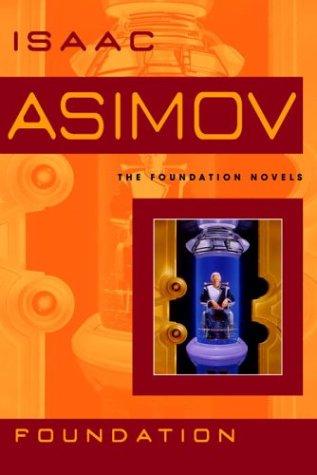scifijack rated The strain: 3 stars

The strain by Guillermo del Toro (The strain trilogy -- bk. 1)
The visionary creator of the Academy Award-winning Pan's Labyrinth and a Hammett Award-winning author bring their imaginations to this bold, …
Author of four novels, Girl on the Moon, Girl on Mars, Interstellar Girl, and Pauper, a standalone. Working on a fifth novel called Fight the Future. I read primarily SFF.
This link opens in a pop-up window

The visionary creator of the Academy Award-winning Pan's Labyrinth and a Hammett Award-winning author bring their imaginations to this bold, …

One of the great masterworks of science fiction, the Foundation novels of Isaac Asimov are unsurpassed for their unique blend …
McDevitt's talent for imagining intriguing scenarios, asking what would hapen if... ?, and then fleshing out what interesting people would do if is I think unmatched today in science fiction. Ancient Shores is an engrossing book, without hardly any explosions or magic handwavium sci-fi plot helpers. It's ending is abrupt and ultimately unsatisfying enough to cost the book a star, but it's nothing that will ruin the experience of having read an accomplished storyteller with a bright and keen imagination telling you what would happen if. I have a fuller review up on my site, but the jist is the same.
Sagan earned every bit of his reputation as a clear communicator of complex ideas, and that's reflected in this series of essays, originally given as lectures, on the broad theme of our search for meaning through faith and through observation and analysis (i.e., science); the tension between the two, but more often, how they're related and interconnected. Stimulating, thoughtful, and often delightful, and as a series of essays you can put it down and return to it between books, and such.
A faux-autobigraphy of an unapologetically thuggish, cowardly, narcissistic, hilarious ne'er-do-well. The whole series is wonderful; so far, this first installment is still the best I've read. Near the end of his life MacDonald Fraser lamented that it would be impossible to write a critically acclaimed, beloved book about a character like Flashy today. He was right, making this series all the more wonderful. You'll wince, but laugh many times more over.
Appropriately subtitled "The Story of Carl Mays, Ray Chapman, and the Pennant Race of 1920"; the death of Indians infielder Chapman from a beanball thrown by Mays is the event around which this biography, sports and cultural history pivots, and its value is contained in that comprehensive examination of the lives and careers of the major and minor characters, the sport, a community and a country in a moment in time.
I get a kick out of this sort of thing. The stories of each of Major League Baseball's perfect games, through Randy Johnson's, told in the context of the state of the sport and the culture when they happened, with exacting thoroughness, comprehensive research and an engaging narrative voice. Would be a great cover-to-cover read, I'm sure, but you could also as I did pick it up and put it down as you read other things.
I have a fuller review up at my site; here I will say that I was not keen on Axis most of the way through, which disappointed me on account of how much I really liked Spin, its predecessor. You don't care about the characters in Axis the way you do in Spin until very late, but once you do, the book's promise is, I think, fulfilled. Appropriately one star less than Spin, but all said and done, a very worthy sequel.
It's so, so difficult to get hold of good material about religious figures, because almost inevitably the work will be overly sympathetic or overly critical. Universal Father isn't the best biography the English language has ever produced, but I'm quite sure it's the best one of John Paul II, and I'm confident saying so even not having read more than a few pages of any other because O'Connor successfully straddles those extremes. The first half, before Karol Wojtyla became Pope, is especially thoroughly researched and well presented.
Canonical Heinlein, and canonical sci-fi. Was at one time given a great deal of attention for the purported consonance between Martian main character Valentine Michael Smith's worldview and that of the hippies of the 60s, and continues I think to be unfairly regarded as a social commentary, or social satire, or especially a suggestion about how we ought to conduct our affairs here on the real Earth. The extent of its impact though is unquestionable: It made that one Billy Joel song where he was trying to be all R.E.M., and added the word "grok" to the OED.
Isn't quite among Barker's best, but is at turns chilling and engrossing, with Barker's characteristic imagination and a nifty premise. The nifty premise isn't revealed until the end, and that's tough to pull off, but Barker does. I can't in good conscience give it more than three stars, but it's short-ish and you reall ought to read it, if you like Barker's sort of thing.